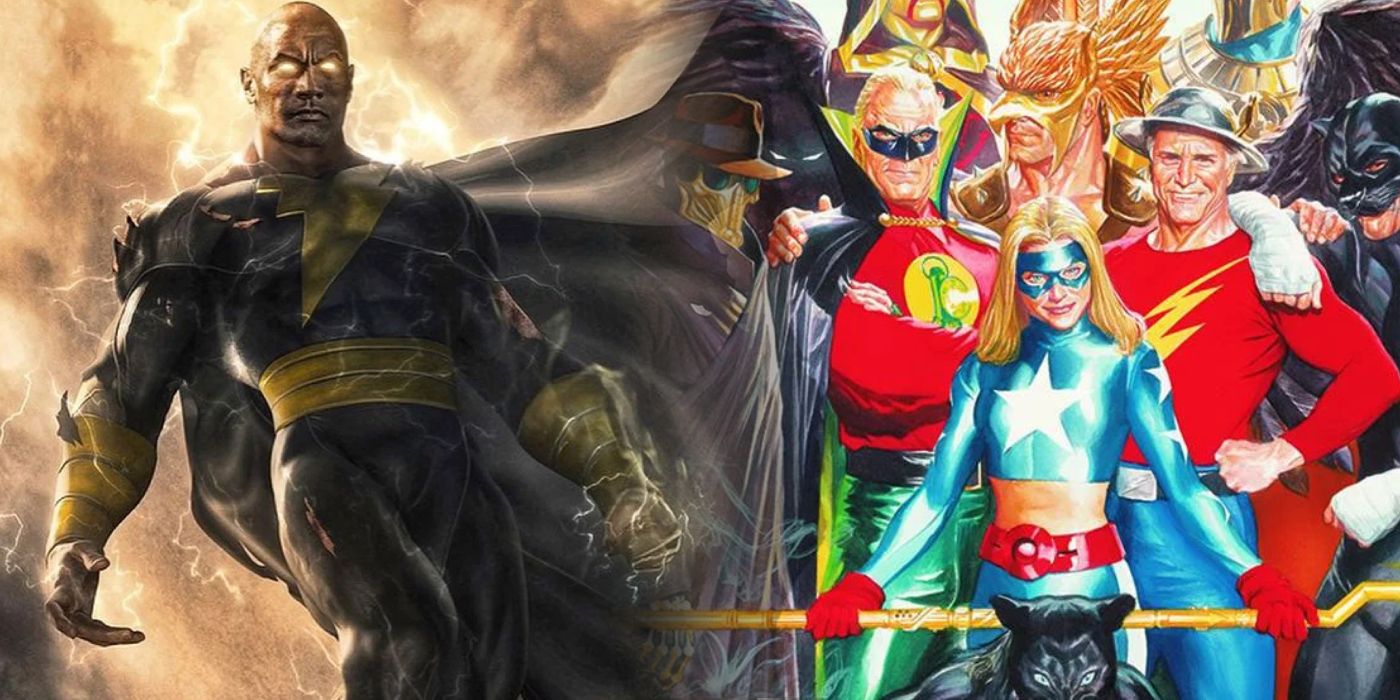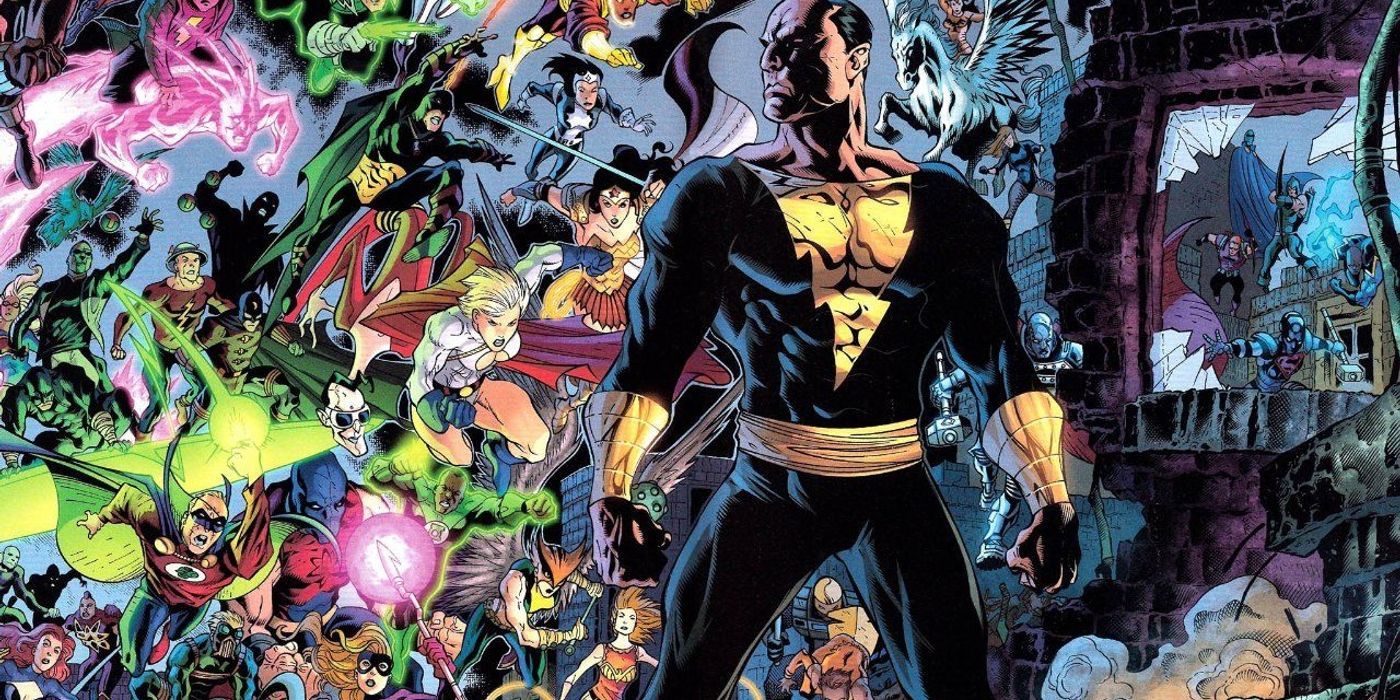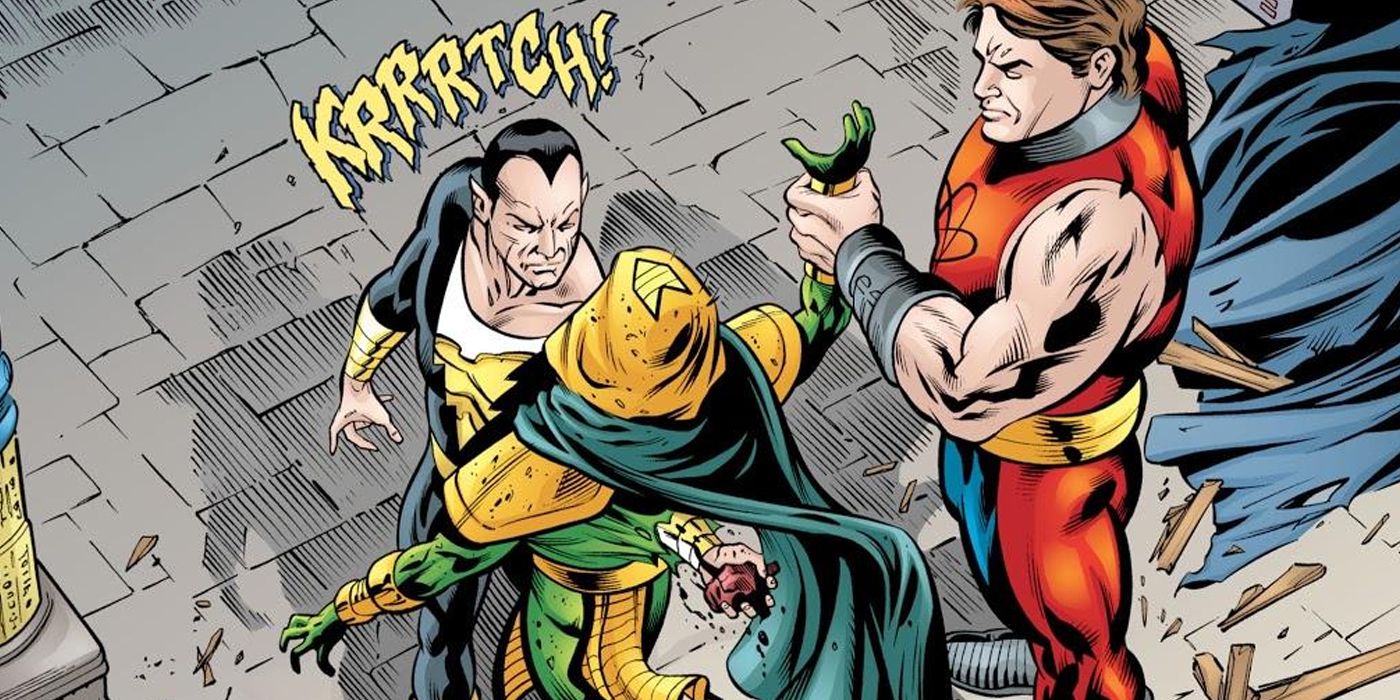From swearing to shattering bones, anti-heroes have won over readers with their irreverent brand of heroism. Yet despite their popularity, vigilantes can overstay their welcome and devolve into clichés. Yet, there is another type of superhero unfettered by tired tropes, one that adds dramatic weight and emotional complexity to a comic book tale.
Tragic heroes are more defined by their flaws than their ability to drop f-bombs. What makes one a tragic hero is, of course, their response to tragedy. While many characters find purpose in their pain, tragic heroes use their suffering to drive them to extreme lengths. Fueled by obsession, they will stop at nothing to achieve their objective. Their reign of terror births more tragedy, yet they are too blind to see it. While the DCEU's Black Adam can definitely be considered an anti-hero, the classic Justice Society story "Black Reign" from JSA #56-58 (by Geoff Johns, Don Kramer, and Rags Morales) highlights what makes this powerful being one of DC's most tragic and terrifying figures.
Black Adam and the Justice Society's Battle for Khandaq Brings Tragedy
Khandaq is the birthplace of Black Adam’s tragedy and the source of his unshakable commitment to justice. After claiming victory in Egypt, the hero returns to Khandaq to discover his wife and two sons slain and his homeland reduced to rubble. In time, Adam exacts revenge on his family's killer, yet the warrior still longs to restore his nation to its former glory. JSA: Black Reign sends Adam back into Khandaq to liberate his country -- by any means necessary.
The hero enlists the help of the rogue Justice Society of America members to overthrow Khandaq’s tyrannical regime. No stranger to violence, Adam comfortably dismantles and dismembers any soldier that stands in his way. In contrast, Atom Smasher struggles to kill and maim, reminded of his more peaceful heroics in the JSA. However, Adam's pressure and persuasion soon cloud his judgment, setting the JSA member into a frenzy of destruction. With help from his JSA defectors, Adam liberates his people from their oppressors, establishing his place as Khandaq's benevolent ruler.
While well-intentioned, the Justice Society's choice to confront Black Adam in Khandaq is a bloodbath of tragedy and regret. Their decision to attack and attempt to usurp Adam's reign results in the death of several JSA members. In response to the loss of his comrades, Hawkman, the leader of JSA, relinquishes his title and flees to process his guilt. It was foolish to invade Khandaq and threaten Adam's rule, for the fierce warrior watched his homeland destroyed once and vowed to protect it. Undoubtedly, the JSA was unprepared for how tough Khandaq's leader would fight to protect his nation -- casualties be damned. With the slain souls of their allies in their hearts, the beleaguered squad agrees to allow Adam's reign to continue -- as long as he stays confined to Khandaq.
How Black Adam's Reign Disgraced His Legacy
Even though the Justice Society of America must grapple with their guilt, Black Adam must face the consequence of his violent crusade for justice. The ruler of Khandaq has established a regime built on bloodshed and death, and his liberation leaves a laundry list of dead fathers and sons for whom he deemed criminals. Adam chose to reset the scales of justice through his might, and as a result, the hero exhibited tunnel vision, incapable of seeing a path toward peace free from violence.
Black Adam's death grip around his nation's safety not only ended lives and severed friendships, but it also reaped tragedy upon his psyche and soul. The climax of JSA: Black Reign portrays Adam as a broken hero, clutching the skulls of his wife and children as he kneels in the sand. Caught in the throes of Battle, the warrior damages the grave site of his family, and in a moment of defeat, Adam stares up at the statue of his wife, her arm now severed and sunken into the sand. He has fought to protect his people from suffering the pain of loss, yet his thirst for justice has disfigured his family and dishonored their legacy. Black Adam realizes he is a tragic hero, a leader who fought for justice no matter the cost -- even at the price of his soul.
,



